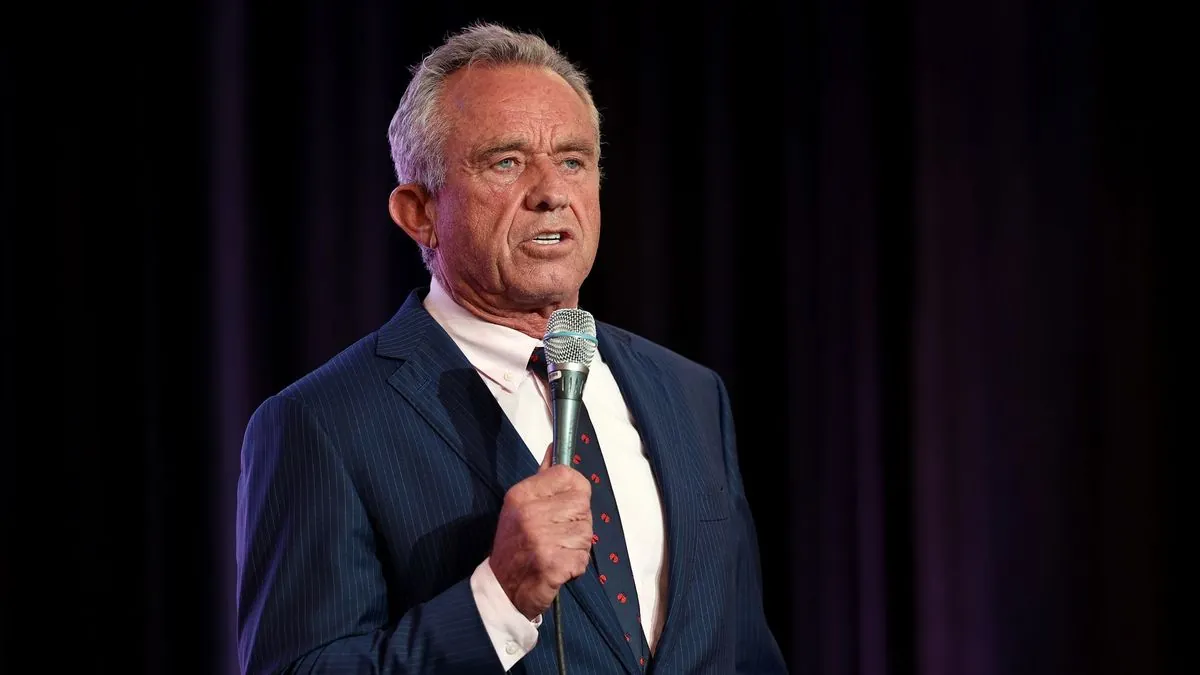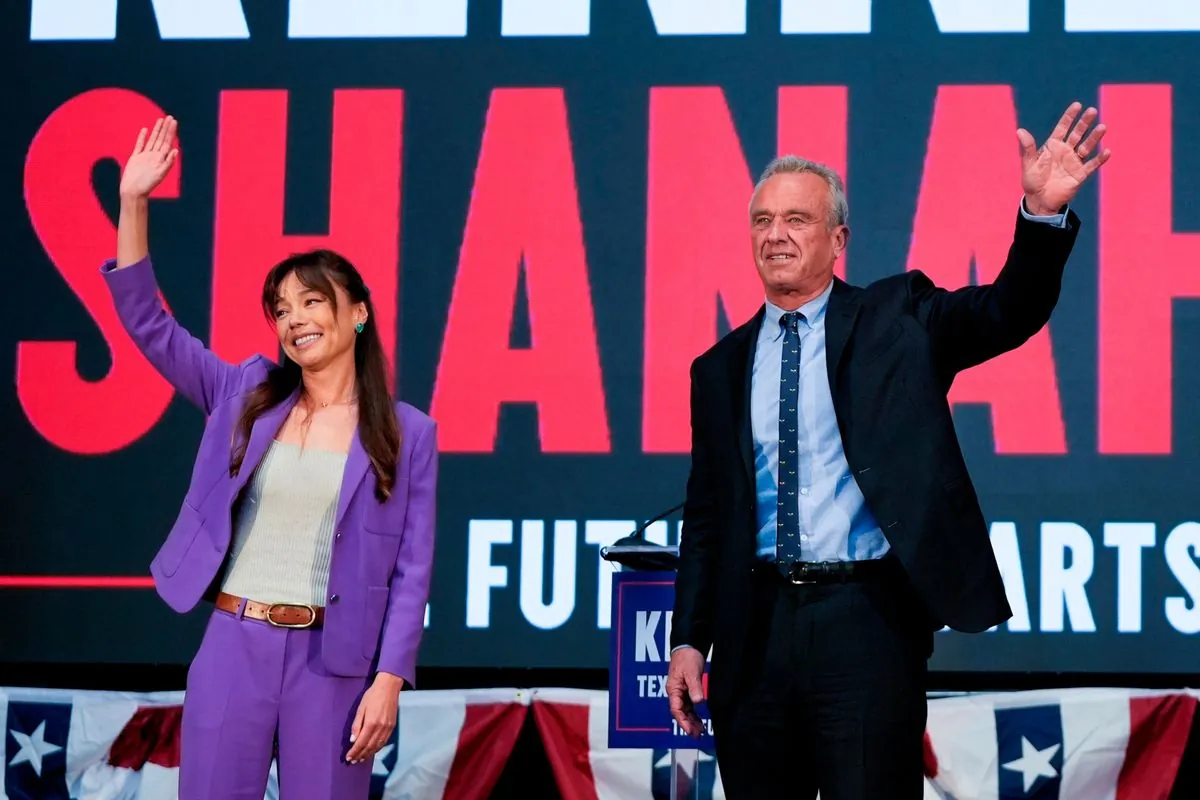Kennedy Mulls Joining Trump as Independent Bid Faces Hurdles
Robert F. Kennedy Jr. considers aligning with Trump amid challenging independent presidential run. His running mate discusses potential "unity party" as ballot access and voter impact concerns arise.

In a surprising development, Robert F. Kennedy Jr., the independent U.S. presidential candidate, is contemplating the termination of his campaign to potentially align with Donald Trump, the Republican contender. This information was disclosed by Kennedy's running mate, Nicole Shanahan, in a recent interview.
Shanahan expressed concerns about their independent campaign potentially diverting support from Trump voters, inadvertently benefiting the Democratic candidates Kamala Harris and Tim Walz in the upcoming November 2024 election. She presented an alternative scenario: "Or we walk away right now and join forces with Donald Trump," though she did not specify a timeline for this decision.

Kennedy, responding to these revelations, stated on social media platform X: "As always, I am willing to talk with leaders of any political party to further the goals I have served for 40 years in my career and in this campaign."
The 70-year-old Kennedy, son of the late Democratic politician Robert F. Kennedy, initially sought to challenge Joe Biden for the Democratic nomination before transitioning to an independent run. Biden subsequently withdrew and endorsed Harris, who is set to accept the nomination at the party's convention this week.
Kennedy, known for his environmental advocacy, faces significant challenges in securing a place on the presidential ballot in numerous states. Despite these hurdles, his campaign could potentially influence the tight race between Harris and Trump. A recent Ipsos poll conducted in August 2024 showed Kennedy's support at 4%.
"Trump had taken an interest in our healthcare policies, making it worth exploring a unity party."
It's worth noting that independent candidates have historically faced significant challenges in U.S. presidential elections, with none winning since 1824. The last third-party candidate to secure electoral votes was George Wallace in 1968, coincidentally the same year Kennedy's father was assassinated during his own presidential campaign.
The concept of a "unity ticket" with candidates from different parties has been proposed but rarely implemented in U.S. politics. If Kennedy and Trump were to join forces, it would be an unprecedented move in modern American political history.
As the November 2024 election approaches, the potential impact of Kennedy's decision looms large. The U.S. electoral system, with its Electoral College and varying state ballot access requirements, presents unique challenges for independent and third-party candidates. Kennedy's campaign, regardless of its ultimate direction, highlights the ongoing debate about the role of alternative candidates in the American political landscape.


































